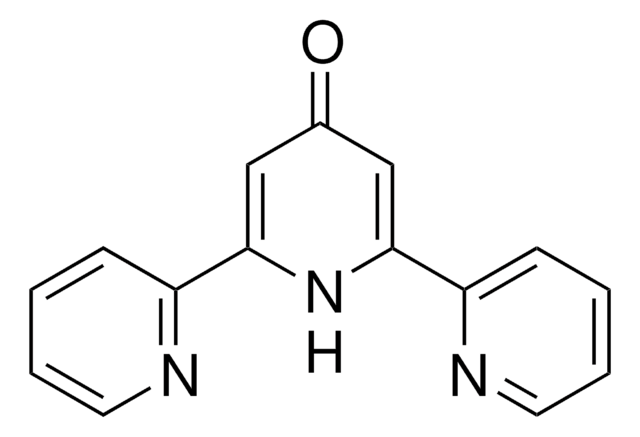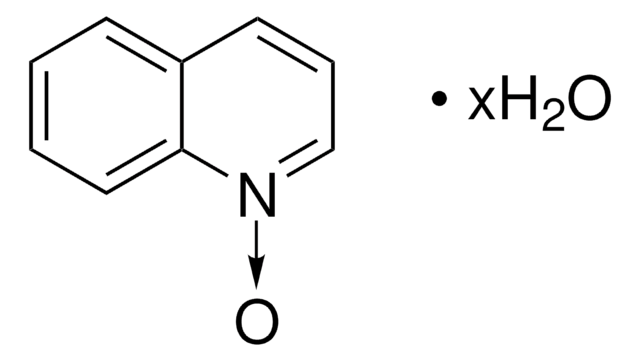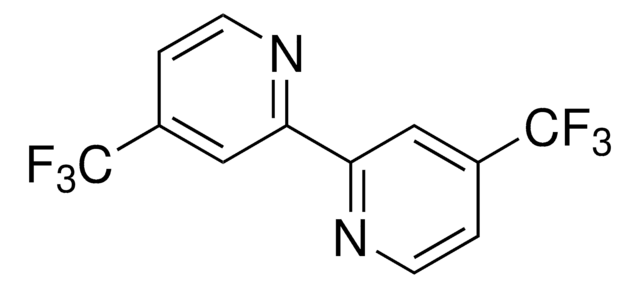520268
4,4′,4″-Tri-tert-Butyl-2,2′:6′,2″-terpyridine
95%
Synonyme(s) :
2,6-Bis[4-(tert-butyl)pyridin-2-yl)-4-(tert-butyl)pyridine
About This Item
Produits recommandés
Pureté
95%
Impuretés
oligomers of tert-butyl-terpyridine
Pf
215-217 °C (lit.)
Chaîne SMILES
CC(C)(C)c1ccnc(c1)-c2cc(cc(n2)-c3cc(ccn3)C(C)(C)C)C(C)(C)C
InChI
1S/C27H35N3/c1-25(2,3)18-10-12-28-21(14-18)23-16-20(27(7,8)9)17-24(30-23)22-15-19(11-13-29-22)26(4,5)6/h10-17H,1-9H3
Clé InChI
QMABMHJGSFUTPF-UHFFFAOYSA-N
Application
- In the synthesis of methylated alkanes and ketones via Ni-catalyzed methylation of unactivated alkyl halides and acid chlorides.
- In Ni-catalyzed reductive dimerization reaction.
- In allylic defluorinative reductive cross-coupling reaction in the presence of Ni as a catalyst.
Code de la classe de stockage
11 - Combustible Solids
Classe de danger pour l'eau (WGK)
WGK 3
Point d'éclair (°F)
Not applicable
Point d'éclair (°C)
Not applicable
Certificats d'analyse (COA)
Recherchez un Certificats d'analyse (COA) en saisissant le numéro de lot du produit. Les numéros de lot figurent sur l'étiquette du produit après les mots "Lot" ou "Batch".
Déjà en possession de ce produit ?
Retrouvez la documentation relative aux produits que vous avez récemment achetés dans la Bibliothèque de documents.
Les clients ont également consulté
Notre équipe de scientifiques dispose d'une expérience dans tous les secteurs de la recherche, notamment en sciences de la vie, science des matériaux, synthèse chimique, chromatographie, analyse et dans de nombreux autres domaines..
Contacter notre Service technique










![2,6-Bis[(4R)-(+)-isopropyl-2-oxazolin-2-yl]pyridine 99%](/deepweb/assets/sigmaaldrich/product/structures/349/609/8673c46e-368a-47a6-a9bd-52bbe13d490a/640/8673c46e-368a-47a6-a9bd-52bbe13d490a.png)


